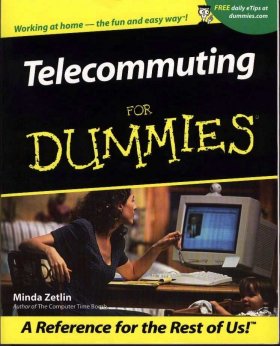|
English on
Internet
By Minda Zetlin
The Internet is the great equalizer, smashing barriers of geography, culture and nationality. It allows anyone, anywhere to make contacts across the globe, or tap into huge stores of information. All that is needed is a computer, a modem and a phone line.
And one more thing: a working knowledge of English. Without that, most of the material on the Web, including this page, is completely inaccessible.
The dominance of English is such an accepted fact of Internet life that it rarely draws comment. In part this is because English is used as the international language in other domains as well--everywhere from diplomacy to air traffic control. The growth of people learning English as a second language is so high that within ten years they will outnumber those of us who speak it as our first language. We are hurrying toward a time when, as one Cambridge professor put it: "English will be taught mostly by non-native speakers to non-native speakers, in order to communicate mainly with non-native speakers."
Nowhere is this truer than in the world of computers. As The Economist noted in an article titled "The Importance of Being American", Americans and the English language so dominate the software development industry that developers from other countries sometimes open offices in the US so as to gain legitimacy.
At least 70 percent of the material on the Internet today is in English. While this is a source of frustration to all non-English speakers, it may be a particular problem for people in developing markets who have had little contact with the West in recent years.
In Russia, for instance, Internet users are accustomed to both the Cyrillic alphabet, and the notion that their own language is the international one (which it was, within the Eastern bloc, during Communism). So the idea that the online world conducts its business in English is particularly galling.
Anatoly Voronov, director of the Russian Internet provider Glasnet, has called the prevalence of English on the Web "the ultimate act of intellectual colonialism." He complains that it's easier to download works by Dostoyevsky in their English translations than in the original Russian. And, he says, the Internet is dividing English-speaking and non-English-speaking users into a new set of haves and have-nots.
But that is changing. Part of the problem has been that the Internet is first and foremost an American phenomenon, with the majority of its users, as well as most of its software, originating in the United States. But the proportion of Net users from outside the US is climbing fast. Services like America Online and CompuServe are expanding into new countries practically every month. With all these new users, the presence of material on the Web in languages other than English is bound to grow.
According to some estimates, it takes at least two million potential users to make a viable Internet market. In countries that have already reached this capacity (Japan, for instance), there seems to be enough non-English material online to satisfy user needs. But in countries that haven't, aspiring web surfers face an unpleasant choice: either wait for the local market to develop, or learn English as a necessary investment before they can enter cyberspace.
|




